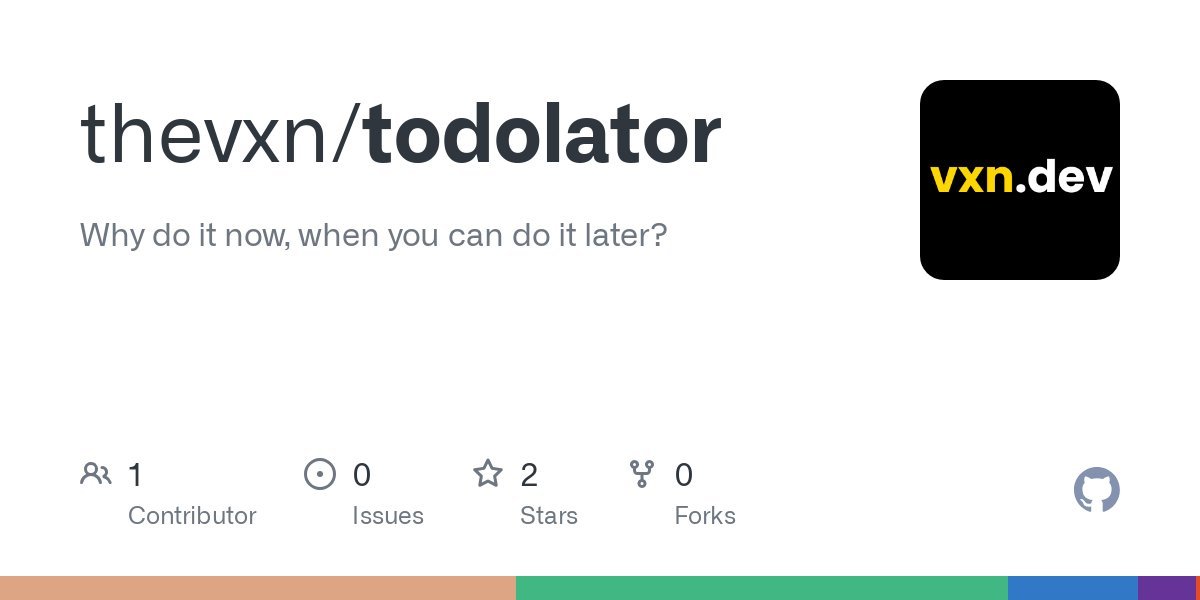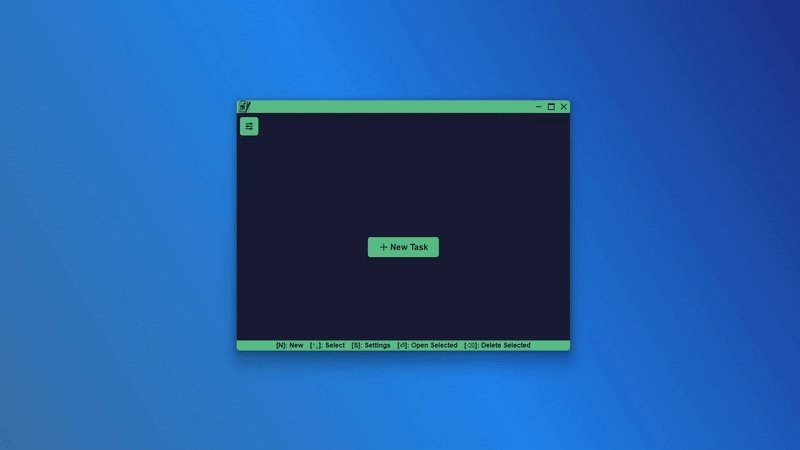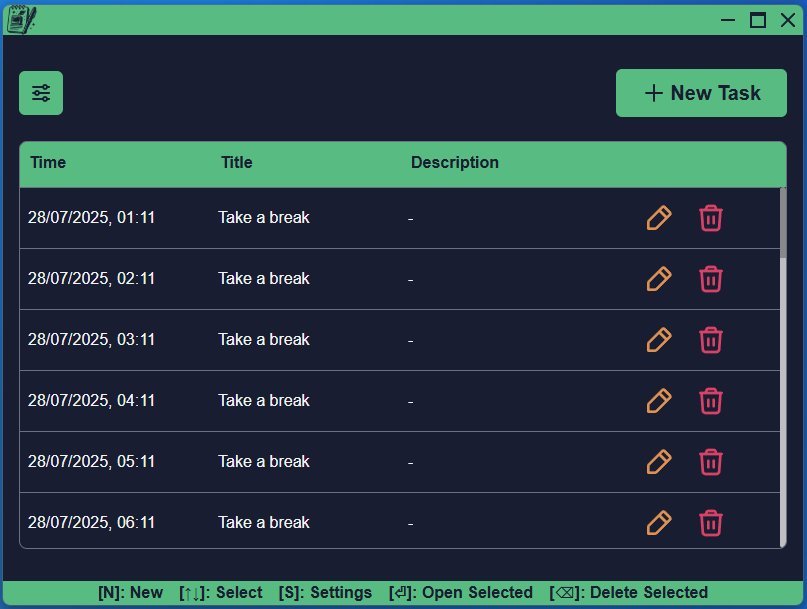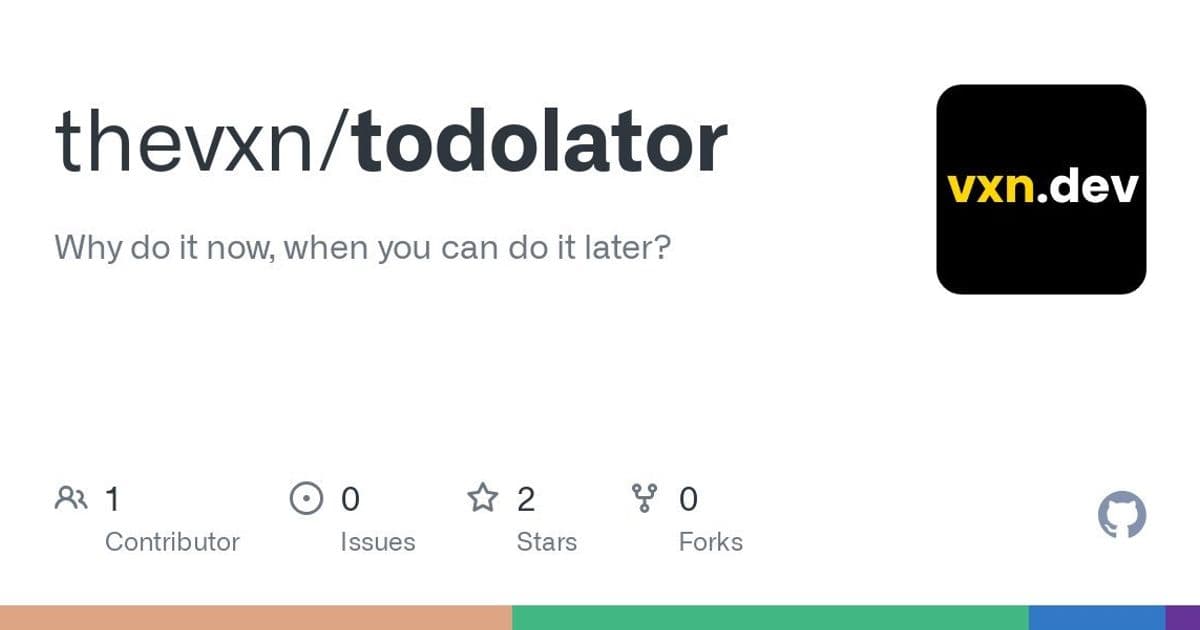Tired of ignoring push notifications? Todolator is a new open-source desktop app designed with Rust and Tauri to deliver hard-to-ignore task reminders that keep your data local and private. This tool addresses the pitfalls of modern notification fatigue while offering a sandbox for developers to explore cross-platform desktop innovation.

In an era of digital overload, push notifications from apps like Google Calendar often fade into background noise, leading to missed deadlines and forgotten tasks. Developers face this daily, juggling meetings, bill payments, and critical workflows. Enter Todolator, an open-source desktop reminder app built to cut through the clutter with unignorable alerts—and it's powered by Rust and Tauri for a privacy-first, cross-platform experience.
The Problem: Why Push Notifications Fail Us
Push notifications are easily dismissed, and browser-based alerts lack the urgency needed for high-stakes tasks. Legacy desktop tools like Kana or Desktop Reminder are outdated or restrictive, leaving a gap for a robust, free alternative. Todolator’s creator, frustrated by these shortcomings, embarked on a mission: build a tool that demands attention while serving as a playground to learn Rust and leverage Tauri—a framework for creating lightweight desktop apps with web technologies.
How Todolator Works: Simplicity Meets Power
Todolator displays reminders as prominent desktop overlays that can't be brushed aside like typical notifications. It supports one-time tasks (e.g., critical meetings) and recurring ones (e.g., daily stand-ups), with all data stored locally to ensure privacy. No telemetry, no internet dependency—just your tasks on your machine.
 Todolator’s demo showcases its clean interface and persistent reminders.
Todolator’s demo showcases its clean interface and persistent reminders.
Built with Rust for performance and memory safety, combined with Tauri for seamless cross-platform deployment, the app runs natively on Windows, macOS, and Linux. Installation is straightforward via downloadable installers like MSI for Windows, DMG for macOS, or AppImage for Linux. Configuration is file-based: users can customize the alarm sound by replacing alarm.mp3 in the app’s data directory, which resides in OS-specific paths like AppData\Roaming\Todolator on Windows.
Why Rust and Tauri? A Developer’s Dream Stack
Choosing Rust wasn’t just about performance—it was about reliability for a tool that handles personal data. Rust’s ownership model prevents common bugs, while Tauri minimizes bloat by using system web views instead of embedding browsers. This combo allows Todolator to be lightweight and secure, a stark contrast to Electron-based apps. For developers, the project is a hands-on tutorial: clone the repo, run npm i && npm run tauri dev to start tinkering, or build releases with npm run tauri build.
Privacy and Future Roadmap
In a landscape rife with data harvesting, Todolator’s local-only storage is a standout feature. Your tasks never leave your device, aligning with growing demands for ethical software. Upcoming enhancements include GUI paging for large task lists, customizable hotkeys, and macOS title bar fixes—addressing current limitations like memory management during scrolling.
 The app’s interface prioritizes clarity, reducing cognitive load for busy professionals.
The app’s interface prioritizes clarity, reducing cognitive load for busy professionals.
The Bigger Picture: Reclaiming Focus in Tech
Todolator isn’t just another todo app; it’s a statement against distraction economy. For developers, it demonstrates how Rust and Tauri can solve real-world problems without compromising user autonomy. As remote work blurs work-life boundaries, tools like this empower us to control our attention—one unmissable reminder at a time.
Source: Todolator on GitHub

Comments
Please log in or register to join the discussion